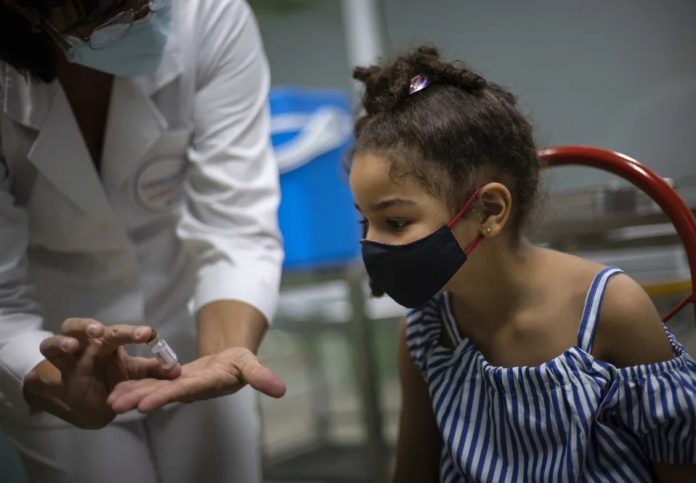Cuba has become the first country in the world to administer COVID-19 vaccines to toddlers, using locally-made vaccines.
On Monday, the island began vaccinating children as young as two years old, as it aims to reopen schools that have been closed for the most part since March 2020.
The new school year started on Monday, but classes are being broadcasted via local television stations, as most Cuban homes do not have internet access.
According to Cuban health officials, children aged two to 18 will receive either the Soberana 02 or the Abdala vaccine, created by Cuban scientists.
Three locally developed vaccines, Soberana 02, Soberana Plus and Abdala, have finished their trial periods and have been approved for use by Cuba’s Center for State Control for Drugs, Equipment, and Medical Devices (CECMED). The Soberana 02 and Abdala vaccines have been approved for emergency use for minors.
Although the vaccines show an efficacy rate of more than 90%, they have not yet been approved by the World Health Organization, the UN agency which spearheads international public health crises.
The program to vaccinate children began last Friday, with kids 12 and older receiving the Abdala vaccine.
Cuba plans to reopen schools gradually in October, once all children are vaccinated.
Several countries have announced plans to vaccinate younger children but have not yet done so due to the emergence of new COVID-19 variants.
Earlier this year, China announced the emergency use of its Sinovac and Sinopharm vaccines for children over 3 years. The United Arab Emirates soon followed suit with the approval of the Sinopharm vaccine for children. Chile has also approved the Chinese Sinovac vaccines for children between six and 12.
Cuba is also planning to reopen its borders to international passengers starting November 15, the island’s Ministry of Tourism (Mintur) announced.
“The Caribbean nation will relax COVID-19 hygiene and sanitary protocols for incoming travelers,” the ministry said, adding new measures that will focus on monitoring symptomatic patients and temperature checks.
Cuba will no longer demand a PCR test upon arrival and COVID-19 vaccination certificates issued abroad will be accepted by customs authorities.
Additionally, the domestic tourism market will gradually reopen depending on the evolution of the pandemic in each region.
The decision to spur international tourism was made because “more than 90% of the country’s population is expected to be fully vaccinated by November,” the ministry said. According to Reuters, about 67% of the island is currently vaccinated.















